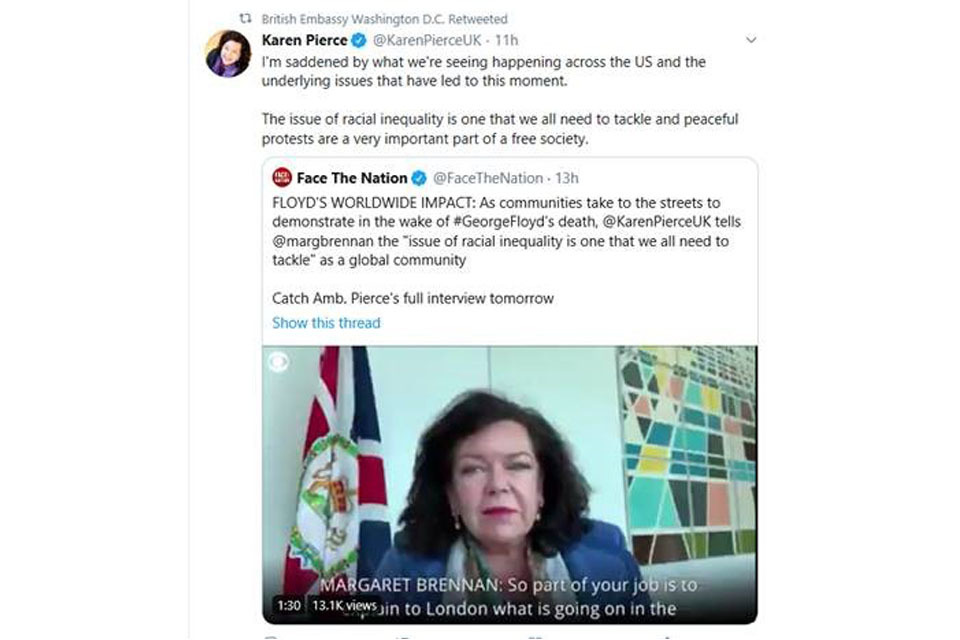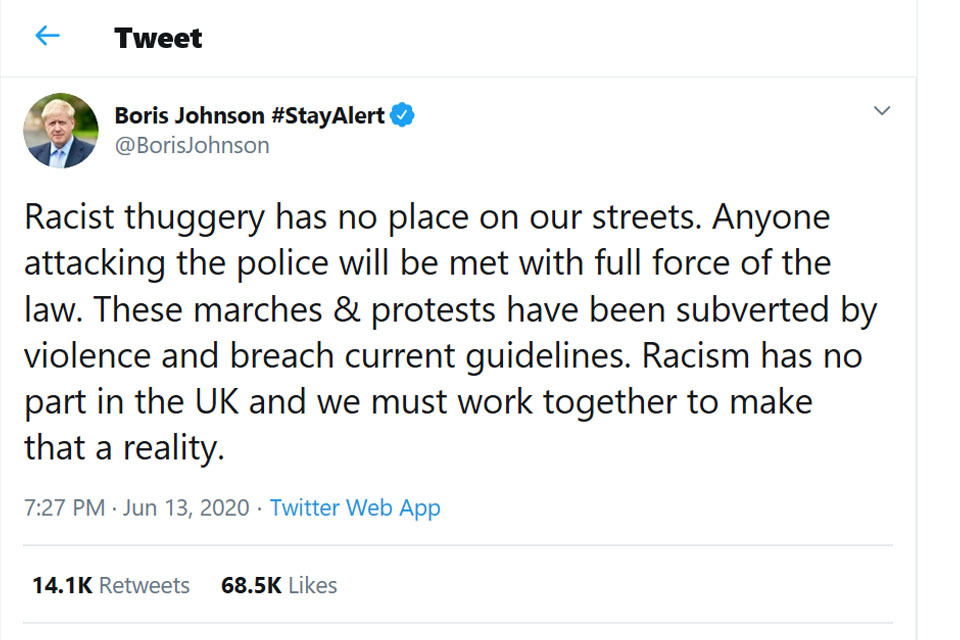UK and Hong Kong: refuting disinformation
Response to media articles about the UK and Hong Kong.

FCO building
As Hong Kong has become a hot topic in recent weeks some media reports have contained errors and inaccurate information. In the below article we have responded to these misunderstandings.
Claim
The UK supports Hong Kong independence: The Paper published on 6 June.
Response
This is not true, the UK is clear that Hong Kong is part of China under the one country two systems framework.
The UK wants to uphold this framework which we believe is key to peace and prosperity in Hong Kong.
Claim
The Sino-British Joint Declaration is an historic document and has no relevance: China News published on 10 June.
Response
The Sino-British Joint Declaration, as it is known, was registered with the United Nations on 12 June 1985 as a legally-binding international treaty that remains in force today.
This agreement between the UK and China made clear that Hong Kong’s high-degree of autonomy, rights and freedom would remain unchanged for 50 years - until 2047 - with limited exceptions such as foreign affairs and defence.
The declaration states: “The current social and economic systems in Hong Kong will remain unchanged, and so will the lifestyle”, including essential “rights and freedoms”.
The undertakings made by China, including the right to freedom of expression, an independent judiciary and the rule of law are important to Hong Kong’s prosperity and way of life.
Claim
Hong Kong affairs should only be an internal matter for China: Xinhua published on June 9.
Response
To maintain global peace and security all countries need to play their part in upholding international law.
The new national security law lies in direct conflict with China’s international obligations under the Joint Declaration which guaranteed Hong Kong with a high degree of autonomy with executive, legislative and independent judicial powers until 2047. The declaration was agreed by the UK and China and registered with the United Nations. It remains in force today.
As a result it risks intensifying divisions in Hong Kong’s fragile society. That is why, alongside other countries, we urged China to reconsider so that we can increase the chances of a return to peace and reconciliation.
Claim
The West does not criticise the US over police brutality and is guilty of double standards: CCTV published on 6 June.
Response
The UK supports the right to peaceful protest wherever it happens in the world. In Hong Kong, we have always been clear that we support peaceful protest and that violence and vandalism from protests is unacceptable.
Our position is the same on the Black Lives Matters protests that have occurred both in the US, UK and across the world. Due to the Great Firewall Chinese citizens are not always able to see where the UK raises it concerns outside China. Below is a tweet from our Ambassador to the US that underlines this.

A tweet from our Ambassador to the US
Claim
The people of HK welcome the proposed law: China News published on 13 June.
Response
It is certainly true that some of Hong Kong’s population support the law. But it is not the case that all of the population is in favour. Hong Kong is a city of 7 million. 2.9 million – less than half of the city - engaged in the survey orchestrated by the Central Government Liaison Office. A popular newspaper survey, Ming Pao, said 64% of the population oppose the law.
Claim
The NPC is acting in accordance with the law: BJ News published on 28 May.
Response
The new national security law has no legal basis and is contrary to both the Joint Declaration and Hong Kong’s basic law.
Claim
Foreign interference is the reason for the protests: QS Theory published on 30 May.
Response
People in Hong Kong are protesting because they fear that their way of life and high degree of autonomy is under threat.
The suggestion that the UK or other countries have somehow organised the protests is false. Instead of making false allegations we hope that China will work alongside the international community to preserve everything that has allowed Hong Kong to thrive.
As the Prime Minister has said:
Britain does not seek to prevent China’s rise; on the contrary we will work side by side on all the issues where our interests converge, from trade to climate change. We want a modern and mature relationship, based on mutual respect and recognising China’s place in the world. And it is precisely because we welcome China as a leading member of the world community that we expect it to abide by international agreements.
Claim
The UK is biased and not willing to condemn violence in HK: Sohu.com published on 9 June.
Response
The UK supports the right to peaceful protest wherever it happens in the world. In Hong Kong, we have always been clear that we support peaceful protest and that violence and vandalism from protests is unacceptable.
In our Six-monthly Report on the issue of Hong Kong to the UK Parliament, we said:
The UK has been consistently clear that violence and vandalism is unacceptable.
After the attack on LegCo on 1 July the then Foreign Secretary said:
No violence is acceptable.
The G7 leaders’ statement on 26 August issued a joint statement calling for the end of violence. An FCO spokesperson statement said on 11 November:
We are seriously concerned by the ongoing violence.
The Prime Minister has made his condemnation of the violence that occurred as part of the protests in the UK over the weekend of 13 and 14 June in his tweet.

The Prime Minister has made his condemnation of the violence